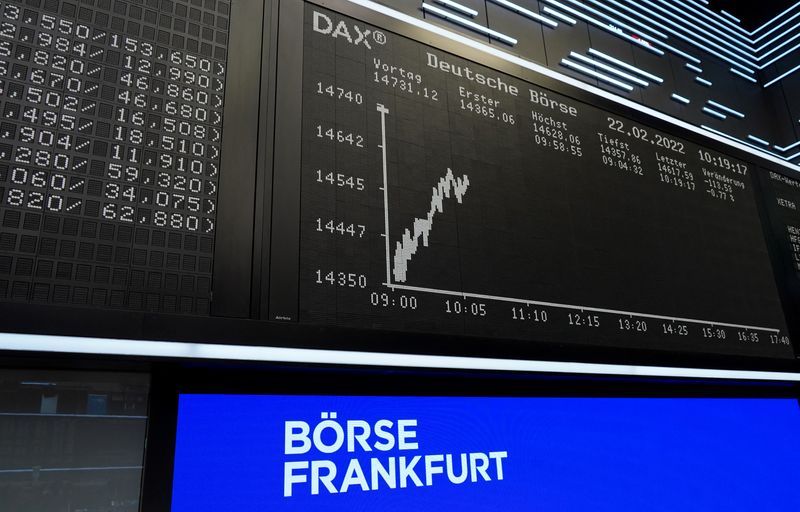This post was originally published on this site

Investing.com – European stock markets are expected to open higher Friday on signs the region’s economy is slowly recovering, ahead of the release of the Federal Reserve’s preferred inflation measure.
At 02:00 ET (07:00 GMT), the DAX futures contract in Germany traded 0.2% higher, CAC 40 futures in France traded flat and the FTSE 100 futures contract in the U.K. rose 0.3%.
Data released earlier this session showed that U.K. consumer confidence rebounded in February, with the GfK’s consumer confidence index climbing seven points to minus 38. While this is still close to the historic lows triggered by the cost-of-living crisis, it still represented a 10-month high.
The forward looking German GfK consumer climate index also improved to -30.5 in March, from -33.8 the previous month.
German growth data was less encouraging, as the Eurozone’s largest economy contracted 0.4% in the final quarter of last year, which resulted in just 0.3% annual growth.
However, these numbers are historic, and business activity numbers in 2023 have been much more optimistic.
“The outlook for the world is slightly brighter at the beginning of 2023 than what we thought it would be just two or three months ago,” OECD Secretary-General Mathias Cormann said Friday in an interview on CNBC, adding that inflation challenges remain.
The extent of those challenges may be made plain in the U.S., the world’s largest economy, later in the session with the release of the core personal consumption expenditures price index for January, the inflation gauge the U.S. central bank studies the most closely.
The index is expected to be up 4.3% on a year earlier, compared with 4.4% the previous month, suggesting inflation will be tricky to tame.
In the corporate sector, BASF (ETR:BASFN) announced plans to cut 2,600 positions, about 2% of its global workforce, as Europe’s biggest chemical firm seeks to cut costs as it learns to live without cheap Russian gas.
Oil prices rose Friday as the prospect of reduced supply from Russia into the global market offset rising U.S. inventories.
Moscow plans to cut up to 25% of oil exports from its western ports in March, according to a Reuters report, which is more than the 500,000 barrel per day supply cut announced earlier.
This news has overshadowed the announcement of another increase in U.S. oil stocks, with data from the Energy Information Administration showing inventories grew for a ninth consecutive week to their highest level since May 2021.
By 02:00 ET, U.S. crude futures traded 0.9% higher at $76.10 a barrel, while the Brent contract rose 0.9% to $82.96. Both contracts were trading down less than 0.5% each for the week, having clawed back earlier heavy losses.
Additionally, gold futures rose 0.2% to $1,830.70/oz, while EUR/USD edged higher to 1.0598.

